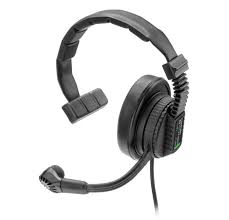Background and Positionality
As a member of the technical teaching staff, my focus has always been on practical matters that support academic units. My specialist area focuses on technical theatre and stagecraft. For example, BA Theatre Design students will learn in their academic units how to communicate a piece of set design, and this unit often comes with a performance outcome. What I teach students is how to get their design from the drawing stage to a performative outcome. I have specialist skills in stage and production management, and an established industry career as a theatre lighting and sound specialist. I have been teaching technical theatre skills for around 10 years, and I have been in industry in a number of different technical roles since 2007.
What do I think students need?
Although we are not in a drama school (or ‘conservatoire’) setting, students still need the practical experience of making shows. Some students only have one academic project performance per year, which is not enough to sustain muscle memory or experience processes that will enable better communication in a performance or production setting.
Students need opportunities to build their confidence, skills, and opportunities to form communities of practice. Currently students work in ‘silos’, only coming together for a collaborative unit in the second year or if they undertake independent projects. I believe there would be better student experience if practical skills were maintained in a cross-course, cross-year co-delivered or technically guided way.
What do I think students want?
From the many conversations over my time teaching at Wimbledon, students want more technical skills, and more opportunities to flex their technical muscles. They are currently restricted by the number of academic performances they can achieve each year.
from hierarchy into a community of practice
The moment students step into my classroom (the theatre), I treat them as professional colleagues. This is intended to bring confidence and ownership of their work and their skills. They undergo intense in-house safety training (given by technical staff), and technical training session to assess their comfort levels in practical skills. All students are supported, with varying degrees of management (some needing more support than others). I believe there is a role for everyone in the performance industry, and encourage students to give everything a go, even just to the stage where they have basic understanding of the work required for that particular process.
Employment
Some students graduating from performance design degrees have gone into the industry as stage management or lighting/sound personnel, with several key skills achieved through working as technical and stage staff on performances, either at Wimbledon College of Arts or in employment/work experience.
There is currently no measurement of technical skills for students if they are not studying a more technically-focused degree (for example, BA Creative Technical Theatre).
I am very much driven by experiential learning – this is my own background – and I come from a position of working towards employability, aiming to get students to be knowledgeable in as many practical areas for the improvement of their chosen career path; I, and they, are keen to understand the many different theatre languages, processes and communication for better industry experience.
Action Research project
While I understand I can’t change the world overnight, I would like to play a part in improving the student experience (and with it, inclusion, equality and empowerment). I wish to equip students with more confidence in their technical abilities. For my SIP, I am hoping to research informal ongoing technical assessments by way of a skills ‘flying hours’ record book would be an appropriate method. This would be a tangible document to present to industry managers to show the record of their witnessed (by UAL staff) technical skills. I would investigate as to whether these informally assessed skills would be recognised or bear any weight to the academic teaching staff/unit assessments. I hope to interview current and recently graduated students, industry technical recruiting managers, academic staff, and current UAL technicians to investigate the scope of informal technical assessment.
Reading/investigation
Association of British Theatre Technicians
www.abtt.org.uk
Production Managers Forum
www.productionmanagersforum.org
Stage Management Association
stagemanagementassociation.co.uk
Contacting industry colleagues from: Hampstead Theatre, Theatre Royal Stratford East, Brighton Dome, Lyric Hammersmith
Contacting technical teaching colleagues from: UAL/Central St Martins, The Bloomsbury Theatre
